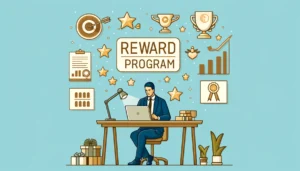HRD Roundtable Report: Harnessing the Power of Belonging through Recognition
- 8 Min Read
It feels like a given to say that a strong sense of belonging will have a positive impact on a business. New research (Achievers, 2021) however shows just how big a difference it can make to the success of an organisation – employees that feel like they belong are twice as likely to be engaged, […]
- Event Types
- Date of Event: Jan 27, 2022


It feels like a given to say that a strong sense of belonging will have a positive impact on a business. New research (Achievers, 2021) however shows just how big a difference it can make to the success of an organisation – employees that feel like they belong are twice as likely to be engaged, productive, committed, and resilient in their roles. In a time of such constant flux, where we are more dispersed and culturally disconnected than ever – how can we foster belonging? What are the factors that most impact how employees feel and what structures and models can we put in place to enshrine a culture that everyone can feel an active part of?
On Thursday 27th January 2022, HRD hosted a group of HR leaders to discuss these questions in a virtual roundtable. Led by Belinda Gannaway, Director, FathomXP and engagement expert and supported by Bianca West, Senior Manager, Professional Services, Achievers, the group shared their challenges as well as solutions and strategies they had developed to tackle them. The session was conducted under Chatham House rules so while this write-up will include key discussion points and takeaways, all participants are anonymized.
A note from the moderator, Belinda Gannaway:
Belonging is such a rich and vital subject, it was great to have such an open and curious group to explore it with, in all its dimensions. Thank you for all of your insights, ideas and experiences. It’s a conversation that is never done and I look forward to revisiting it with you again and seeing what learnings we can bring to the table next time. Keep up the good work and stay curious
Where are the belonging challenges in your organisation?
We’re all at different stages in our belonging journeys but some organisations are starting to look beyond inclusivity and equality and are striving for belonging to be part of the culture and ethos of their business. People are experiencing the opportunity to reflect on what it important to them, and they need their organisations to reflect their core values. As one participant put it, ‘mediocre cultures’ are where many organisations are falling down.
For some organisations the belonging challenge emerges from the nature of their business and employees. For example, in the hospitality and entertainment sectors where employees tend to be more transient, like young people working part-time during college. In these kinds of industries, while it’s possible to foster belonging at individual locations, between close knit teams, it can be much more difficult at an organisational level.
We also see this in organisations with particularly complex structures – different departments or subsidiaries can develop their own cultures. This is great for individual teams but doesn’t support the feeling of being part of a bigger mission. How do we communicate with them the real wider culture of the business, and not just the microcosm they experience day to day?
There is the ongoing challenge of ‘post-pandemic’ life – expectations on flexibility have shifted a great deal and hybrid work environments are becoming the norm. But how do we keep the engagement, and equal experience across both home and office workers? What are the pros and cons of different policies and how do you implement them in a way that make everyone feel included in the process?
Where are we seeing the attrition in our employee demographics? Depending on the business, it can really vary. One participant reported how they are finding high belonging at lower levels of tenure, but then it really drops off after a few years, when recognition and promotion starts getting less frequent. It’s well accepted across the board that it can be easier to get a promotion in a new company, than expect to continuously move up in your current one. How do we combat this expectation? Another participant had noted the opposite, with their longest standing members being the ones most engaged and ready to stay. The difficulty here then is incorporating new joiners into the company culture and adjusting it for new generation. This isn’t always about being the highest paid either – one HR leader puts it down to making sure the highly and specialist skilled feel valued in their roles. Career plans do change as people age – someone that has been with a business for 10, 15 years is likely at a different life stage than someone in their 4th or 5th year in the workforce. They have a greater investment and will likely be looking for stability over jumps in development.
How do we create belonging? Do we know how to measure it?
Historic measures and approaches to measuring belonging have sometimes been quite narrow and benchmarking against other organisations can only take you so far and is not always useful early in the journey. Every organisation has different dynamics that they need to consider when trying to identify their maturity level. Strategies include steps like organising an internal panel that knows the business well and can objectively review the current state of play. We need to understand that there is no silver bullet for this – we can only work to understand all the elements that come together to build a bigger picture.
How do we connect belonging with effectiveness?
We strive for strategies like belonging and DE&I and healthy cultures because they are the right thing to do, but also because they have been shown to have a real business impact. And, at the end of the day, for the most part we measure people on their performance, not their cultural commitment. But are we thinking about the connection between belonging and productivity in the right way at an individual level? Have we given managers the tools to have these conversations with their teams, and identify their own biases? Are they able to have real quality development discussions and help employees see a long-term future?
Belonging is a conversation that needs to continuously evolve, and leaders need to be bought in and ready to reflect the culture we’re trying to build. One participant for example, doesn’t confirm any strategies until the entire leadership team has been in one room to discuss it together and ensure everyone understands. Once they are on the same page, then it can be rolled out.
How do we drive the human experience and interaction?
Shared purpose carries a lot of weight here. One participant’s industry (entertainment) meant that many employees come into it with a personal passion, that translates into a shared passion. This special ingredient is also able to be directed into the customer – everyone wants to share the best of their passion for the best customer experience.
Another participant shared the value they have found in creating space for employees to make their own decisions in how to help customers, and not be fully bound by process. What feels right to do to help this loyal customer of 5 years? Even though it’s not policy, how can we honour the relationship? This autonomy enables employees to contribute to the ethos and culture of the business, not just absorb it.
Manager training is key here again – have they got the language, and have they got the trust from their employees to move away from transactional work, and create spaces where people can be themselves?
How do we create a culture of recognition?
It’s important to think of belonging as a change management exercise – it’s not just implementing a technology partner, but creating a mindset change throughout the business.
A question many employees ask themselves is ‘Am I being paid for the value I deliver?’ Payment here can be literally monetary (and this is of course important!), but it’s also important to fix the relationship with the manager. Payment can be recognition and appreciation. It is natural human nature to take things for granted, and consistent performers can unfortunately be overlooked by managers. We need to train people to say thank you, regularly. We need a team dynamic where leaders can also say sorry when needed and thank you for sticking with me.
We need to help managers have the relationship where they know how people like to be recognised, and the autonomy to work in that way. For some, a shout out at a company wide meeting is embarrassing, and they would much rather it highlighted in their next 121. For others, that level of recognition is important to feeling like they contributed to something bigger.
Leaders need to role model this behaviour, but is should be encouraged at all levels. A culture of recognition between peers is where we reach an organic, authentic belonging that is echoed around the business.








